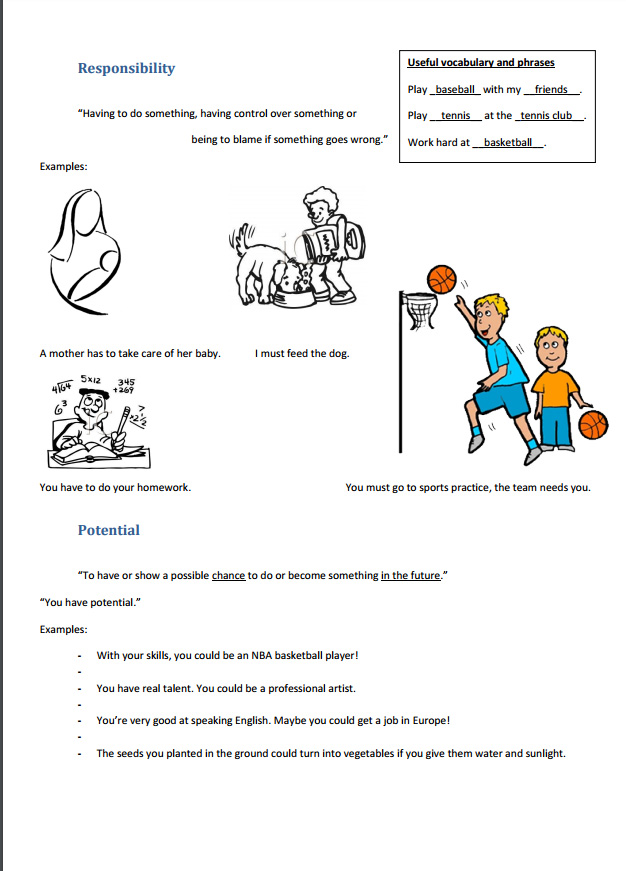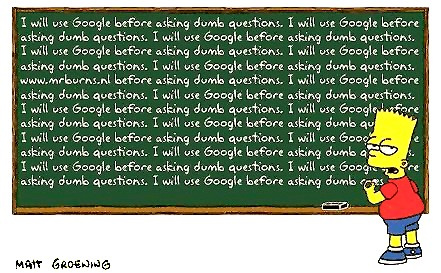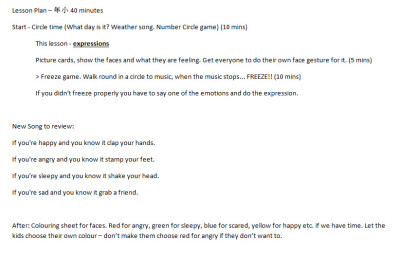How do I Pass a Job Interview for English Teaching Jobs in Japan?
This requires a bit of planning but if you follow the tips I’m about to share with you, your chances of landing that job after getting the interview will skyrocket!
First of course you have to get the interview, which we have covered before here on Live Work Play Japan. We learned to slow down and give yourself time to make the application as good as it could be. We learned to spell out exactly how we fit the requirements, to keep it concise, to have a great letter of intent and to call the school to make sure you get that interview. Now for the home stretch: getting the job!

Nailed the interview! And I have the body of Fukuoka tower…
The goal I have in mind is to make your interviewers have that feeling like: “We gotta get this guy.”
Or girl.
You don’t want to be thinking:
“Ooh, I hope they will like me. I hope they will notice that I’m a nice person and I really need this job.”
Nuh-uh!
You want to go into interviews thinking that they would be lucky to have a dedicated, hard-working and talented teacher like you! We’re going to show you how.
Related Posts:
No.1 – Confidence Through Preparation.
You want to go in with confidence… of course that is easier said than done. Do you know how you can give yourself some confidence before a job interview?
Prepare for it, a lot! Not just preparing materials and answers to questions, but mentally getting ready to get the job.
Be knowledgeable. Would you forget what to do next during a class? Well, er… It happens, but you don’t want them to think that!
There is a ton of psychology about confidence out there, but really for me confidence in interviews has come from a number of things that might help you:
- Being so well prepared that you don’t need to worry about what they are going to ask. You have a core principle as a teacher and all answers will correspond to that.
- Believing in yourself – Sounds corny to believe in yourself but you’re going to be standing up in front of twenty, thirty, maybe forty kids every day and teaching them English while also making them laugh and have fun. You’re good at this, don’t forget that.
- Knowing you’re a good fit for the job. If you’re just applying because you need the job, I feel like even a passably competent interviewer would be able to tell quite easily. If you applied for a job you didn’t want, this will be obvious at interview… just sayin’.
- And building on those other things: past success. You’ve gotten jobs before this and you’ll get jobs after this. If you don’t get this one, you’ll get another one – and they would be lucky to have you, too!
No.2 – Position yourself as someone that fulfils their need.
Really know what you want out of the job and, more importantly, what that company wants and needs from you. What is their need that they’re looking to fulfil by hiring you? They want to know that they are hiring a good teacher, and someone that can reliably do the job. Oh, and you have to be polite! Bow properly and introduce yourself in Japanese. This will show them that you can at least be passingly communicative with other staff in Japanese, which is very helpful even if it isn’t specifically required in your job.
At Fuji Kindergarten I actually started my interview in Japanese by introducing myself. Then the directors continued in Japanese with me replying in Japanese for more than 20 minutes until they had some complicated contract questions that were a bit beyond my level (then the interpreter stepped in to help me out). This kind of thing will almost always impress a hiring committee because then they can have some faith that you can communicate without them needing to have an interpreter around for everything.
This is just one example but really it is worth taking the time to jot down what the company might want from its teachers. Responsibility, punctuality (for God’s sake show up on time, punctuality is a Japanese culture) and enthusiasm are all pluses. But also think about what a Japanese company hiring English teachers wants.

Polite introduction shows you have the bare minimum of cultural sensitivity.
Take an example – If it is a wealthy international school with parents who pay a ton of money (read: 100,000¥ a month) to be there, do you think they want to see someone who dresses like a biker with visible tattoos on their arms looking after their kid? Unfortunate as it sounds, they usually want someone responsible looking, wearing a shirt and tie and well-groomed.
Men, in Japan you should shave for the interview. If you plan to have a beard (as I do) ask them if it is alright at the end of the interview. In my experience more often than not the company will say it’s ok (“GaijinCard” – you are not held to the same standards as Japanese people, and thank your lucky stars for that). It’s probably best not to show up to interview with a beard unless it really is non-negotiable for you. If you must have a beard, prepare to have it affect the outcome of the interview, and probably not in your favour.

Yeah, this beard? Not gonna impress at an interview for a teaching position…
No.3 – Talk passionately about teaching for kids benefit.
Be emotive when talking about your teaching experience. Don’t only talk about what it means to you, but what benefit the kids gain from having you as a teacher. It never hurts to talk about research you have done, so make sure you have read some recent studies about teaching methods and how people learn language. Doing an online TEFL course will help you to have a few basic strategies and methods to call on when asked, but I like to read modern research coming out so I have something up to date to talk about in an interview.
Where possible I like to talk about teaching methods that I have interest in, such as Montessori and science that I’ve read. I make it relatable to the kids that I would be teaching. Even past experience confirming that can really help make you seem like the best kind of teacher.
“I had this student who wouldn’t say anything… then I tried asking them about their life and suddenly they were so talkative”
“I taught in a school and it seemed like all the kids were bored with the curriculum so I… arranging the class in Montessori style allowed the kids to have freedom and….”
You can finish these kinds of sentences with your own stories. People can tell that I am a passionate teacher because of the way I talk about my students, with a big smile and lots of pride. That’s the kind of teacher they want.
No.4 – You MUST “Wow!” them with your teaching demo.
The part of the interview that a lot of my friends hate is the dreaded demo. The demo is where the company will ask you to pretend that they, the interviewers, are children and teach them English in the kind of style you would if you were doing the job. It’s nerve racking and you might feel really silly for talking kindly and slowly to grown men pretending to be kindergarten students. Don’t let it bother you, because the demo is actually the biggest opportunity you have to instantly put yourself in the running for the job.
Really this is key, most companies will hire or reject you purely based on what they think of your demo. Typically a company will ask you to prepare a 5-20 minute demo to example teach (act out) for them in the interview room (though once I got to do the lesson with actual kids at the school, which is much much better). Plan for ten minutes longer than they ask you to demo for just in case you are nervous and rush through all of your materials (which a lot of teachers do in an interview situation, myself included).
When you finish actually provide your interviewer with your lesson plan complete with goals for each material! Here is one I did for my International school job that I totally re-use for interviews if I need it:
An easy lesson plan with timestamps and extra activities for if there is time.
If you’re applying for a kindergarten job, have a practice speaking game ready to play. One of the ones I use at interviews is the freeze game, where you have kids dance around and freeze when you stop the music or yell freeze. If a kid moves after you say freeze they tell you what card you’re holding. Even simple things like that show you’ve thought about who you’re gonna be teaching.
If you’re applying for a job teaching at junior high or high school, you really should consider making a worksheet, with pictures and opportunities to ask questions and use the language. Take this example one that I mocked up very quickly in Word for a high school teaching position.

A simple worksheet for a position teaching high school kids the meanings of some specific words. Make sure there are absolutely no English mistakes like typos, spelling or grammar.
While this sheet is pretty simple, it definitely shows that I can prepare something for a junior high or high school class at short notice. If you have been asked to make something more general then you can create a short worksheet that outlines your class, and ensure that it is something that the kids can follow along with even if they might not want to speak out.
No.5 – Have thoughtful interview questions about how to do your job better.
You have to sell them that you can do the job, and if you show up reacting to what they say and thinking that canned answers to questions like “Where do you see yourself in five years” are gonna cut it, you’d be dead wrong!
I’ve never once been asked that question in Japan, probably because most teachers only stay for a few years. They don’t expect you to stay for five years.
They do expect you to care about the quality of work you do. Here are a few questions I think about before I go to an interview, and usually ask two or three of them.

Ask thoughtful questions, not canned interview ones.
- If I got the job, what would the average day look like?
- How many students are in the class?
- I like to draw pictures and make extra materials for the students – how much freedom is there to do that within your curriculum?
- Do I get opportunities to come to kids sports club games? (I went to maybe three club games at the Junior High in the year and it was not only fun but well worth it to support the team and build relationships with students, so don’t shy away from this just because it might take up a morning on your weekend)
- Can I eat lunch with the kids or do I need to eat in the teachers room? (My personal favourite to ask)
So there you go. Hopefully this gives you some ideas and gives you some confidence in doing well at an interview.



